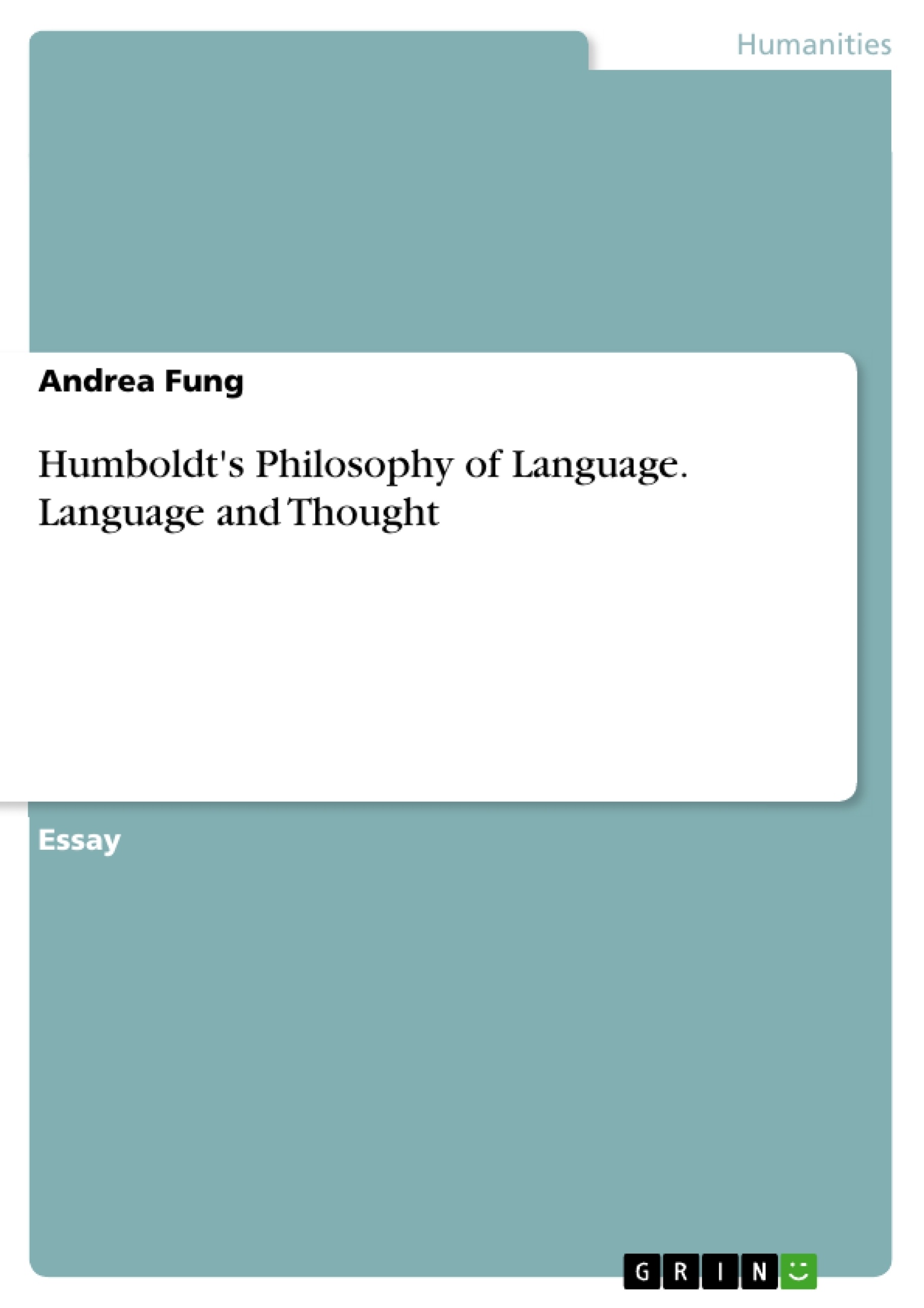Culture is a value-network, which the expression of meaning is inevitably linked to language. Therefore, culture and language are inseparable. Yet, is language purely expressing our thoughts? In his book "On Language: The Diversity of Human Language Structure and its Influence on the Mental Development of Mankind", Wilhelm von Humboldt, a German philosopher, linguist, diplomat and educator, pointed out for the first time that, the nature of language influences the worldview of a nation (German: Weltanschauung).
With regard to Humboldt’s obscure writing and pivotal doctrine, further elaboration will not be recounted in this paper. Only some relevant theories will be extracted to apply on the interpretation of the relationship between language and thought.
Inhaltsverzeichnis (Table of Contents)
- Language and Thought
- Preset: everyone is proficient in language
- The operation of language: phonetics
- Active and passive in language
- The Impact of Language on Thought
- As there is passive in language itself, language users will be subject to restrictions while using the passive in language
- Philosophically, the divergence of thought caused by the difference of language nature is obvious
- Conclusion
Zielsetzung und Themenschwerpunkte (Objectives and Key Themes)
This essay aims to analyze the relationship between language and thought by examining the philosophical framework of Wilhelm von Humboldt. It delves into the impact of language on the formation of thought, considering how the structure and features of specific languages shape the worldview of their speakers.
- The influence of language on thought
- The role of phonetics in shaping language and thought
- The concept of "mental labor" in language use
- The impact of language on cultural and philosophical perspectives
- The limitations and possibilities of language in influencing thought
Zusammenfassung der Kapitel (Chapter Summaries)
The essay begins by outlining the key concepts of Humboldt's philosophy of language, highlighting the inherent connection between language and thought. The concept of "mental labor" is introduced, emphasizing the active role of individuals in shaping and utilizing language.
The second chapter examines the specific operation of language, focusing on the role of phonetics in constructing meaning. This section also analyzes the dynamic relationship between language and thought, considering both active and passive elements.
The final chapter delves into the impact of language on thought, exploring how language limitations and specific grammatical features influence the cognitive processes of individuals. Examples from different languages are provided to illustrate these influences, highlighting the potential for cultural and philosophical divergence across linguistic boundaries.
Schlüsselwörter (Keywords)
This essay explores the key themes of language, thought, culture, philosophy, and language influence. It delves into Humboldt's philosophy of language, examines the role of phonetics in shaping language and thought, and analyzes the impact of language on cultural and philosophical perspectives. Important concepts explored include "mental labor," linguistic determinism, and the interplay between active and passive elements in language use.
Frequently Asked Questions
What is the core idea of Humboldt's philosophy of language?
Wilhelm von Humboldt argued that the nature and structure of a language fundamentally influence the worldview (Weltanschauung) of its nation.
Are language and culture separable according to Humboldt?
No, culture is a value-network and meaning is inextricably linked to language, making them inseparable components of human development.
What is the role of "mental labor" in language?
Language use is seen as an active process of mental labor where the individual shapes thought through linguistic expression.
How does phonetics relate to thought?
The text explores how the phonetic operation of language serves as a bridge between internal thought and external expression.
Does language restrict the user's thinking?
Yes, as language contains passive elements and specific structures, users are subject to certain cognitive restrictions inherent in their language.
- Quote paper
- Andrea Fung (Author), 2017, Humboldt's Philosophy of Language. Language and Thought, Munich, GRIN Verlag, https://www.grin.com/document/376304



